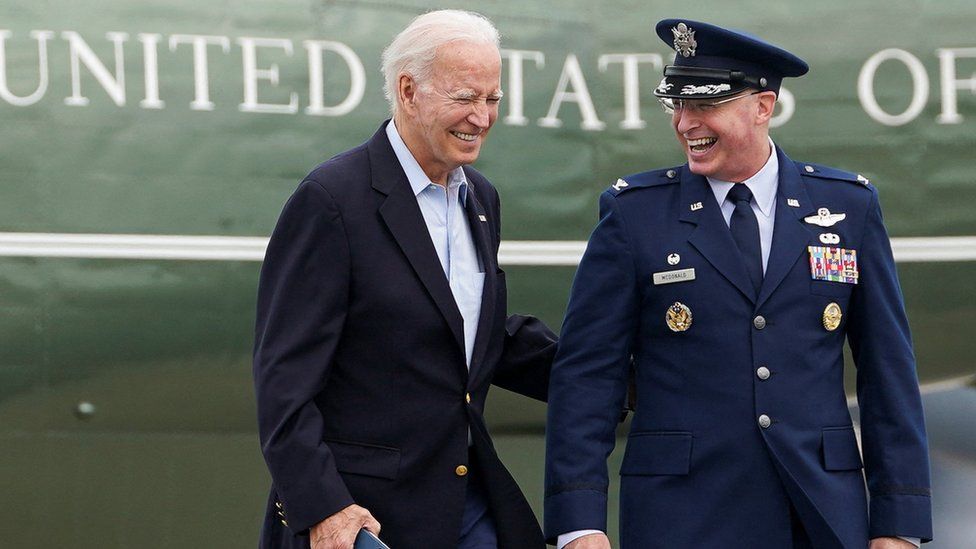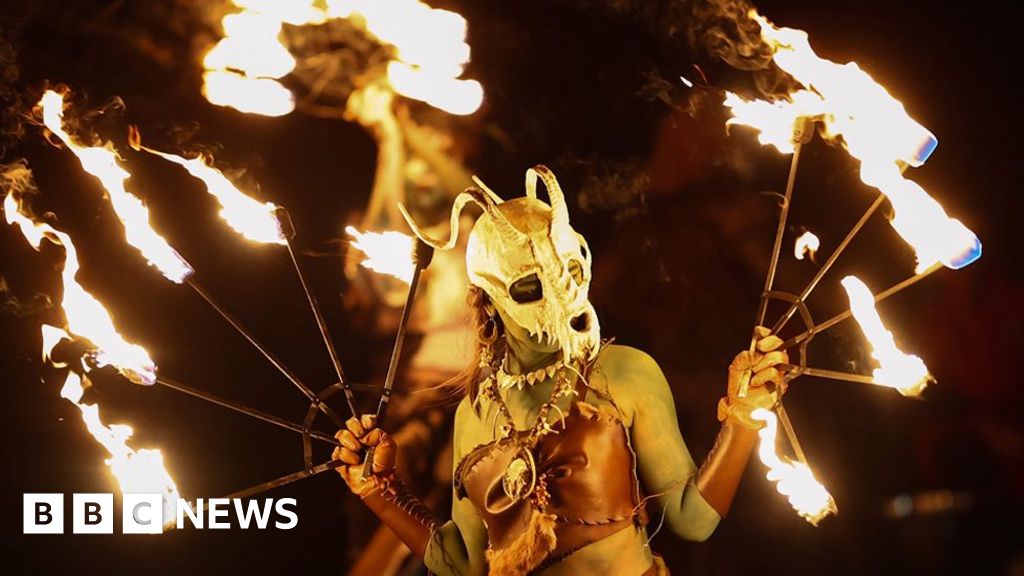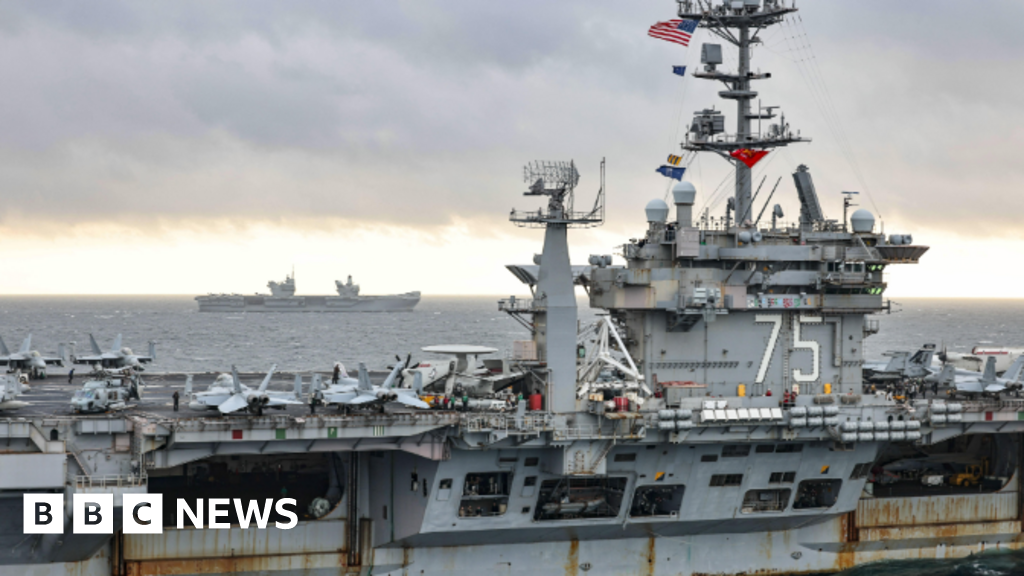ARTICLE AD BOX
 Image source, Reuters
Image source, Reuters
US President Joe Biden is escorted to Air Force One, before departing for Britain
By Kathryn Armstrong
BBC News
US President Joe Biden is heading to Europe ahead of a Nato summit after several allies questioned his decision to send cluster bombs to Ukraine.
The UK and Canada are among those who voiced concern about supplying the bombs, which are widely banned because of the danger they pose to civilians.
The US says they are needed because Ukraine's weapon stocks are dwindling.
Mr Biden will arrive first in the UK, on Sunday evening, before heading to Lithuania for this week's Nato summit.
On Monday, he will meet Prime Minister Rishi Sunak to discuss various issues, including the war in Ukraine. He will also meet King Charles on Monday - the first time the pair have met since the King was crowned.
The US confirmed it was sending cluster bombs to the Ukraine on Friday as part of a military aid package worth $800m (£626m).
Mr Biden said it had been a "very difficult decision" but that he had eventually acted because "the Ukrainians are running out of ammunition".
But a number of Nato allies quickly distanced themselves from the decision.
Mr Sunak did not directly criticise his US counterpart but made clear that the UK was one of 123 countries that had signed up to the Convention on Cluster Munitions, which bans the production or use of the weapons.
Canada, New Zealand and Spain - all Nato members, like the US and UK - also stated their opposition to the weapons.
"No to cluster bombs and yes to the legitimate defence of Ukraine, which we understand should not be carried out with cluster bombs," Spain's Defence Minister Margarita Robles said.
But Germany, another signatory of the treaty and Nato member, said that while it would not provide such weapons to Ukraine, it understood the American position.
"We're certain that our US friends didn't take the decision about supplying such ammunition lightly," German government spokesman Steffen Hebestreit told reporters in Berlin.
Cluster bombs typically release lots of smaller bomblets that can kill indiscriminately over a wide area.
One of the concerns surrounding their supply is their failure - or dud - rate. Unexploded bomblets can linger on the ground for years and then indiscriminately detonate.
Ukraine has promised the weapons will not be used in civilian areas and will monitor and report on their use, but Russia dismissed these assurances as "not worth anything".
Watch: US military video shows how cluster munitions explode
Mr Biden's visit to the UK comes a month after the two countries signed the so-called Atlantic Declaration - an agreement designed to strengthen co-operation between the countries.
Aside from the war in Ukraine, it is also expected Mr Biden will seek further support from Mr Sunak to help broker a deal with Turkey, which is currently opposed to Sweden joining Nato.
This, alongside the divisions over Ukraine's membership, will be among a number of other issues that will be discussed during the organisation's two-day meeting in the Lithuanian capital, Vilnius.
Also on the agenda will be boosting ammunition stockpiles and reviewing the alliance's first defence plans in decades.

 1 year ago
17
1 year ago
17








 English (US)
English (US)